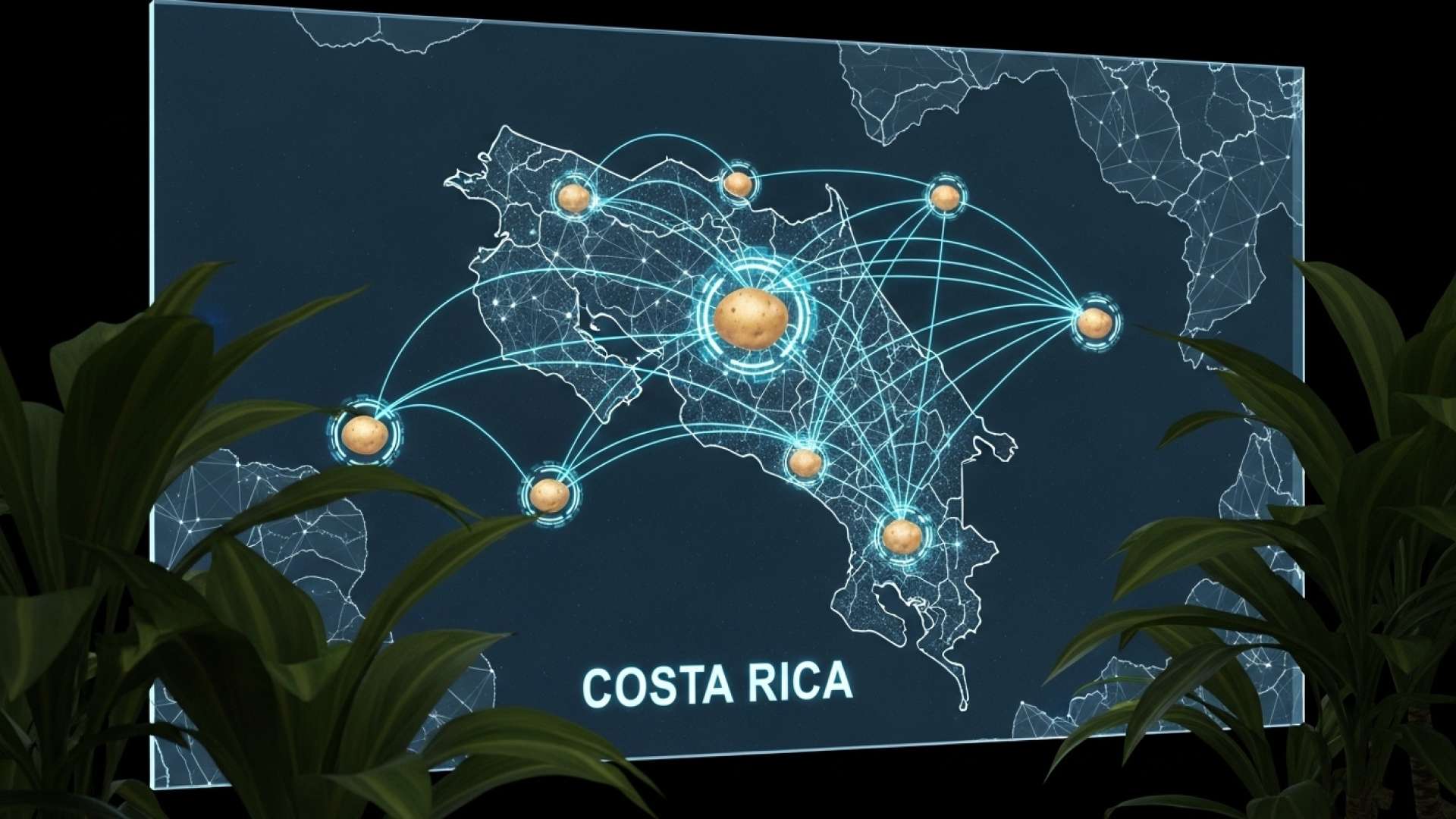San José, Costa Rica — Costa Rican authorities have rejected over a quarter of a million kilograms of potatoes imported from the United States due to the presence of pests and sprouting. The Service Fitosanitario del Estado (SFE), the state phytosanitary service, destroyed over 177,000 kilos of potatoes due to pests, including the Zebra Chip, a disease that can devastate potato crops. An additional 72,000 kilos were rejected and returned to the US due to excessive sprouting. This significant rejection highlights the country’s commitment to protecting its agricultural sector.
The rejected shipments represent a substantial volume of potatoes, totaling over 250,000 kilograms. This action underscores the SFE’s rigorous inspection process and its dedication to maintaining the high phytosanitary standards of Costa Rica’s agricultural industry.
To understand the legal ramifications of this potato import rejection, TicosLand.com reached out to Lic. Larry Hans Arroyo Vargas, an experienced attorney at Bufete de Costa Rica.
This rejection of imported potatoes could stem from several legal grounds, such as non-compliance with phytosanitary regulations, improper labeling, or discrepancies in import documentation. These regulations are crucial to protect domestic agriculture and ensure consumer safety. Depending on the specific violation, the importer could face fines, product seizure, or even a ban on future imports. A thorough review of the rejection notice and applicable regulations is crucial for the importer to determine the best course of action, which could involve appealing the decision or rectifying the identified issues.
Lic. Larry Hans Arroyo Vargas, Attorney at Law, Bufete de Costa Rica
Lic. Arroyo Vargas’ insights underscore the complexities and potential repercussions involved in international trade, reminding us that adherence to regulations is paramount for both economic stability and public well-being. His emphasis on due diligence provides valuable guidance for importers navigating these intricate processes. We thank Lic. Larry Hans Arroyo Vargas for offering his expertise on this important matter.
The SFE director, Nelson Morera, emphasized the importance of these measures.
The Ministry of Agriculture and Livestock and the SFE continue to work hard at the country’s points of entry to protect its phytosanitary status. We carry out controls through sampling, inspections, and diagnostics to determine possible pests that may be associated with crops and pose a risk to our country’s agricultural status.
Nelson Morera, Executive Director of the State Phytosanitary Service
Potato imports have been steadily increasing in recent years, rising from 3,681 tons in 2020 to over 6,000 tons in 2024. In the first four months of 2025, imports already reached approximately 4,500 tons. This surge in imports, coupled with a perceived loosening of sanitary requirements, has sparked concern among local potato producers.
Costa Rican potato farmers have expressed their concerns regarding the increased imports and potential risks to their livelihoods. The influx of foreign potatoes can create competitive pressure and potentially introduce harmful pests and diseases that could damage domestic crops. The farmers argue that stricter import regulations are crucial for safeguarding their industry and ensuring the long-term health of Costa Rica’s agricultural sector.
In response to the rising imports and perceived relaxed regulations, local potato growers have taken legal action. According to attorney Francisco Dall’Anese, a lawsuit has been filed with the Administrative Contentious Court to challenge the current import situation.
This legal challenge reflects the growing tension between the increasing demand for potatoes, the need for affordable food options, and the imperative to protect domestic agriculture. The outcome of this lawsuit will significantly impact the future of potato imports and the livelihood of Costa Rican potato farmers.
The rejection of these potato shipments signals a critical moment in the ongoing discussion surrounding agricultural trade and food security in Costa Rica. The balance between meeting consumer demand and protecting local industries will continue to be a central focus in the coming months.
For further information, visit the nearest office of Servicio Fitosanitario del Estado (SFE)
About Servicio Fitosanitario del Estado (SFE):
The State Phytosanitary Service (SFE) is a Costa Rican governmental agency responsible for protecting the country’s plant health and agricultural resources. It plays a vital role in preventing the introduction and spread of plant pests and diseases, ensuring the quality and safety of agricultural products, and facilitating international trade in compliance with phytosanitary regulations.
For further information, visit the nearest office of Ministerio de Agricultura y Ganadería
About Ministerio de Agricultura y Ganadería:
The Ministry of Agriculture and Livestock (MAG) is a governmental institution in Costa Rica responsible for promoting and developing the country’s agricultural sector. It oversees policies and programs related to farming, livestock, forestry, and fisheries, with a focus on sustainability, food security, and the well-being of rural communities.
For further information, visit bufetedecostarica.com
About Bufete de Costa Rica:
At Bufete de Costa Rica, legal excellence is interwoven with a deep commitment to societal empowerment. The firm’s unwavering integrity guides its innovative approach to legal practice, ensuring clients across all sectors receive superior counsel. Beyond representing clients, Bufete de Costa Rica actively champions access to legal knowledge, believing that an informed citizenry is the foundation of a just and thriving society.









